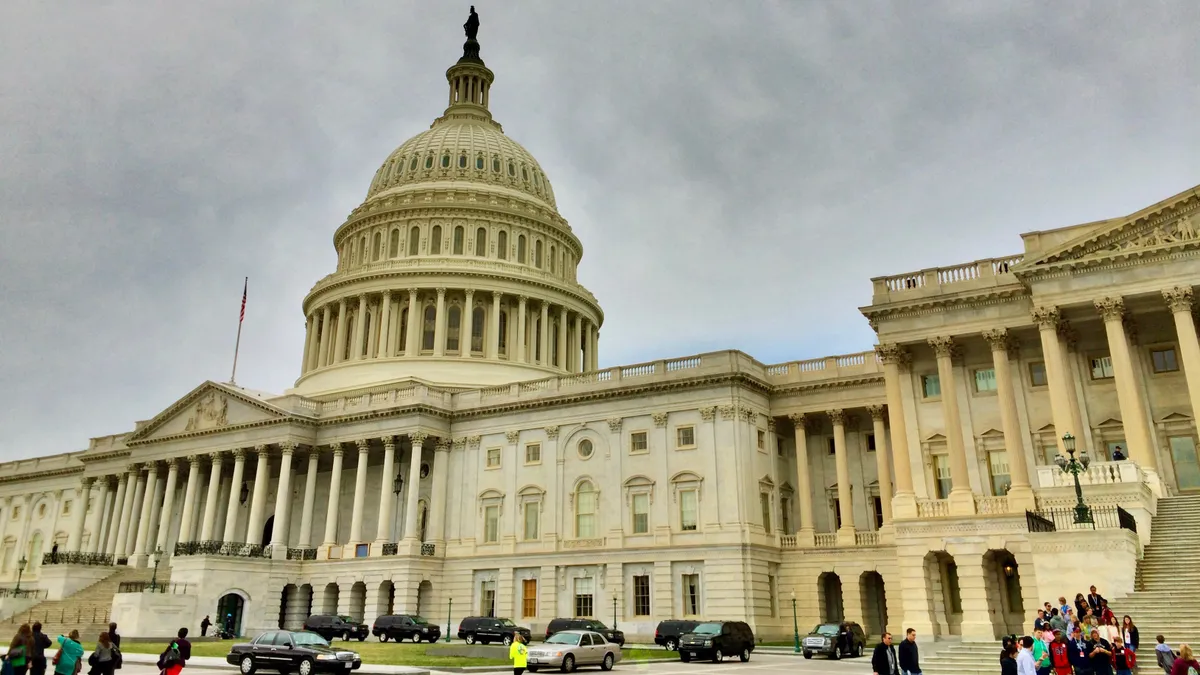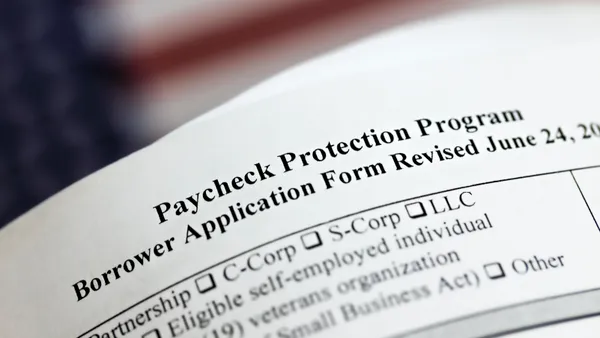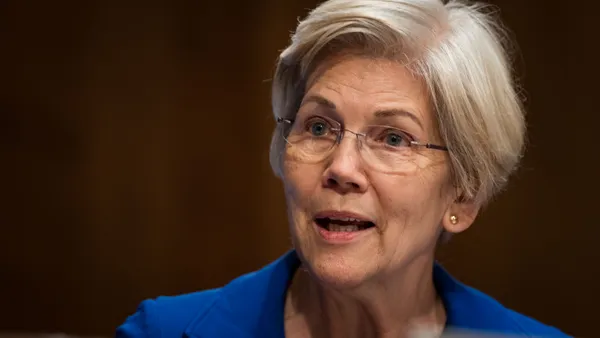Dive Brief:
-
Reps. Alexandria Ocasio-Cortez, D-NY, and Rashida Tlaib, D-MI, introduced a bill Friday that would help create a national federally chartered public banking system in the U.S.
-
The Public Banking Act would establish a grant program administered by the secretary of the Treasury and the Federal Reserve Board, which would provide grants for the formation, chartering and capitalization of public banks. The bill would also codify that public banks may be members of the Federal Reserve.
-
The creation of public banks would expand financial services to underbanked communities and help fund public infrastructure projects, the lawmakers said.
Dive Insight:
A public banking system would enact banking as a public utility, keep money local and "cut costs by eliminating Wall Street middlemen, shareholders and high-paid executives," said Tlaib and Ocasio-Cortez, who are both members of the House Financial Services Committee.
The bill follows a June 2019 report released by the Federal Deposit Insurance Corp. (FDIC) last month that found almost half (49%) of the country's unbanked said they didn't have bank accounts because they couldn't meet minimum balance requirements.
"It's long past time to open doors for people who have been systematically shut out and provide a better option for those grappling with the costs of simply trying to participate in an economy they have every right to — but has been rigged against them," Tlaib said in a statement.
The congresswomen said a public banking system would also provide local governments with the capital to pursue affordable housing and local renewable energy projects.
"Public banks empower states and municipalities to establish new channels of public investment to help solve systemic crises," Ocasio-Cortez said in a statement.
Efforts to create public banks in the U.S. gained traction in the past year.
Los Angeles City Council President Herb Wesson announced L.A. would create the state's first public bank shortly after California Gov. Gavin Newsom, a Democrat, signed the Public Banking Act in October.
The California Bankers Association (CBA) and the American Bankers Association (ABA) opposed the legislation, arguing public banks cause community banks to lose business and put taxpayer dollars at risk.
"Today highly regulated, private-sector banks take on that risk as they reliably serve consumers and businesses, as well as state and local governments across the country," ABA spokesman Jeff Sigmund told Banking Dive last year in an email. "Except in very specific circumstances, public banks are a solution to a problem that doesn't exist, and taxpayers should be more than skeptical of politicians trying to convince them otherwise."
California became the second state to enact a public banking law, joining North Dakota, which has had a public banking system in place since 1919.
New Jersey may also join the fold. Gov. Phil Murphy, a Democrat and former Goldman Sachs executive, signed an executive order last year to create a 14-member board aimed at launching a state-owned public bank.
That move also met opposition from the state's banking association.
Michael Affuso, director of government relations for the New Jersey Bankers Association, told American Banker the group is "opposed to the creation of yet another state bureaucracy."













